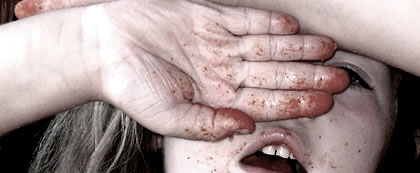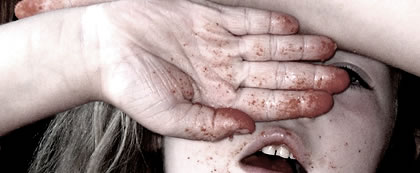
London is currently the centre of world attention as security forces claim to have foiled a terrorist plot to bomb a number of civilian aircraft. In response the media has gone into special-event overdrive which usually involves: a) endless repetition of the same sketchy information and b) pointless graphics attempting to cover up for a lack of cold hard facts. Not that I’ve been watching or reading any of it – I don’t see the point.
Special news events only serve to display in even starker contrast how little most of the news really matters to the average person who isn’t directly affected. And yet people are glued to it, why? I mentioned three psychological theories in relation to last year’s tube and bus bombings. These theories are useful but don’t tell the whole story.
Perhaps there are, in fact, more disasters nowadays than there used to be. While this immediately smacks of seeing the past through rose-tinted contacts, according to figures from Center for Research on the Epidemiology of Disasters, this might be true. Between 1970 and 1979, 1,230 disasters were registered, while more than 3,000 disasters were reported between 2000 and 2003. Perhaps the world really is getting more disaster prone.
And then there’s the other culprit: media hype*. The media runs on hype, it’s what they live for and it’s what keeps them alive. Take the hype out of the media and you get, well, The Independent (sorry, I love it really). So if the media need their hype the same way I need food, oxygen and House M.D.), what harm does it do?
It’s very difficult to tell. Vasterman, Yzermans & Dirkzwager (2005) say there have only been a handful of studies carried out and still there is little concrete evidence. Given the nature of the problem, that’s probably the way it will remain. Despite this, they do point to some correlational evidence that connects depression and post-traumatic stress disorder with viewing ‘disaster-related television’. I certainly wouldn’t bet against it.
*Although the term ‘media hype’ doesn’t have much scientific currency at present, Vasterman (2005) is trying to change that with his theoretical framework.
 Vasterman, Yzermans & Dirkzwager (2005) The Role of the Media and Media Hypes in the Aftermath of Disasters (Abstract | Full Text PDF)
Vasterman, Yzermans & Dirkzwager (2005) The Role of the Media and Media Hypes in the Aftermath of Disasters (Abstract | Full Text PDF)
 Vasterman (2005) Media-Hype: Self-Reinforcing News Waves, Journalistic Standards and the Construction of Social Problems (Abstract)
Vasterman (2005) Media-Hype: Self-Reinforcing News Waves, Journalistic Standards and the Construction of Social Problems (Abstract)

